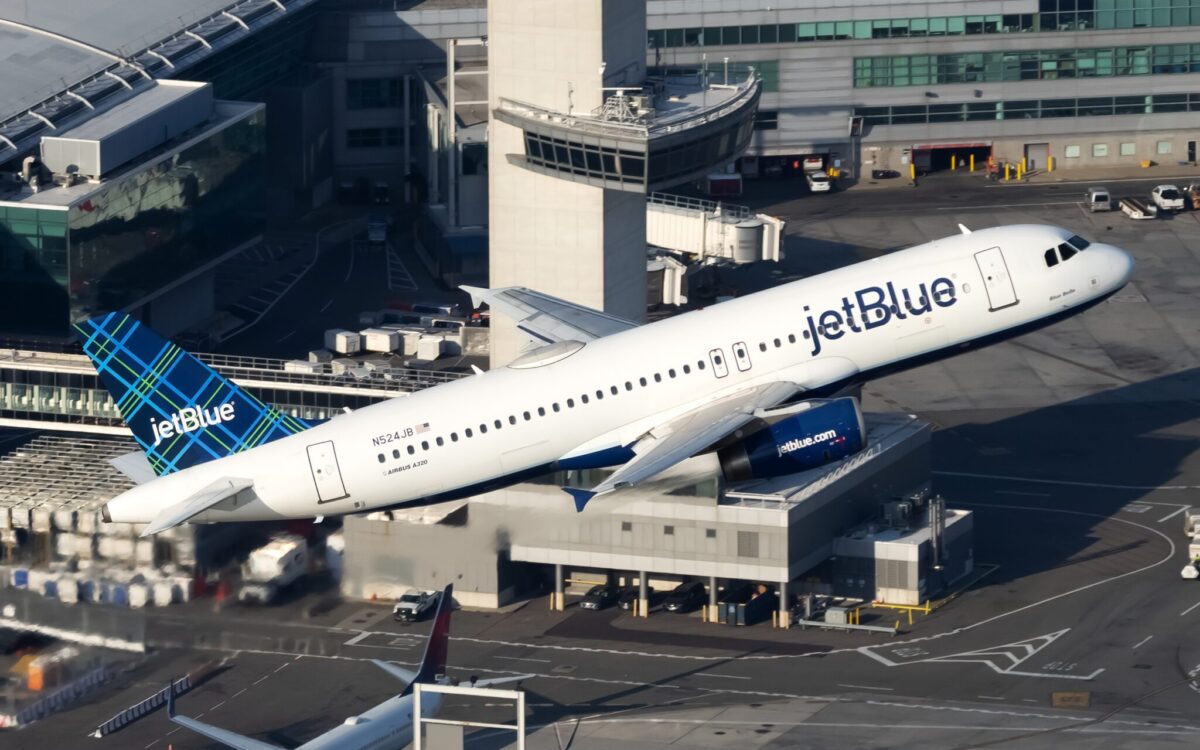Full Video: Certares Founder Greg O’Hara at Skift Global Forum 2021

Skift Take
Certares Founder and Senior Managing Director Greg O’Hara spoke with Skift CEO Rafat Ali at Skift Global Forum 2021. The two discussed the theme “Investor Predictions on the Future of Travel.”
You can watch a full video of their discussion as well as read a transcript of it, below.
Rafat Ali: Hey Greg, how are you? Well, thank you for coming virtually. I know you really wanted to come here, but you were not able to make it, but I’m so glad that you’re here on video.
Greg O’Hara: I did. You picked UN week traffic to get from Manhattan to JFK. So it was going to be a six or seven-hour ordeal, my guys tell me so.
Ali: I heard there was an airport attached to the hotel, but anyway, I’m kidding.
O’Hara: There’s a whole thing going on for me right now. So I appreciate you letting me do this. I did want to show up in person. I’ve been showing up in person now for almost everything for about the last 18 months. So it definitely wasn’t because of any other reason than just sheer logistics of getting there during Midtown traffic during UN week.
Ali: Of course. Thank you. And obviously speaking of the last 18 months, there’s a reason why you’ve been traveling, which is that you’re obviously very, very busy. You’ve been buying companies, investing in companies. Let me ask you this question. Why do you pass on deals? Obviously you see a lot of deals. I’m sure everybody’s asked.
O’Hara: It’s been interesting. So this might be the easiest time to invest in the travel business that there ever was, if you’re an expert. So normally in normal times, we figure out what kinds of industries we want to invest in. You talk to the companies in those industries, we build up relationships, and then hopefully over time, we get an opportunity to partner with those people or buy their companies. That, as of March 2020, that’s kind of reversed itself. So instead of us having to make outbound calls, I can’t remember the last time we made one. It started as a trickle, people needed capital, and they were calling maybe two or three CEOs a week. Now it’s probably five to 10 a week, maybe sometimes in a day. And so it’s pretty easy to figure out which companies are good companies and which companies should be allocated the capital.
And right now it’s also very easy for us to figure out how to structure those investments, so that they’re fair for the people that we’re putting the capital into and provide our investors a risk-adjusted return. In normal times, I would say we’re trying to make a risk-adjusted return on our investment. And so we pass on the things that we don’t think that’s fair on. And now we’re probably passing on more stuff than we ever have before because we’re trying to get capital to the companies that are long-term. And I think you’ve seen that whether it be TripAdvisor at the beginning of the pandemic, which turned out to be a pretty good business and was a good allocation of capital. (Or) the latest ones like Hertz and Avia. And they span the globe — some are in the U.S. (but) the latest one we did was in was in Vilnius, Lithuania. So we’re spreading the love and the capital wherever we can find it.
Ali: And so for you, are you agnostic to investing versus owning? Or are you taking a stand going that, “We want to invest and not own the full business?” Obviously some you own fully, some you’re investing, taking stakes in them.
O’Hara: I think it depends on the situation. If we have an opportunity to invest alongside someone we think is a really good partner, someone who has great credentials, and is a great operating manager. Examples of that are Rudi Schreiner and Mario Ferrara in the cruise business. I can’t imagine owning those companies by myself would be better than owning those companies with them. TripAdvisor, having Greg Maffei and John Malone as your partners, they’re terrific guys, and they understand the business really well. American Express — partnering with them was great. And (for) other businesses we own all of, it all depends on what the opportunity is. We’re happy to do either. And I would say that as we invest in things, the governance we install is sometimes independent of economic ownership. Sometimes, we have a lot of economic ownership and a little bit of governance. Sometimes, we have a lot of governance and less economic ownership — it all depends on the situation. But we’re happy to look at anything, whether we own 10 percent of something or 100 percent of something. It’s all the situation and the people involved.
Ali: And you’re staying away from sort of — How do I phrase it? — the buzzy hot travel startups, per se. You’re sort of staying away from that. I mean, I know you have a venture arm. Have you invested in those types of early stage things or you’re consciously thinking about more later stage?
O’Hara: No, we’ll look at all that stuff. You and I know each other pretty well. I think it’s no secret that I’m pretty skeptical of a lot of these things. I won’t say who they are because some of them, I think, might be your sponsors here. So I don’t want to step on anyone’s toes, but I’m skeptical of those. I’ve seen ones that I’ve been involved with early on. I think Paul English, but for the pandemic, might’ve had success at Lola. He certainly was good with Kayak and other things in the past. I think there are great buzzy travel startups. Are they worth five or 10 or $15 billion? Smarter people than me must know that. For the most case, on a risk-adjusted basis, I don’t think all of them were fat, but the large majority of them are overheated and overvalued. And you’ve seen me when they come back down to earth, make a lot of investments in those things.
Ali: Can you build a travel startup these days that’s not adjacent either in their transaction or adjacent to the transaction? Can you build a company that’s large enough (and) not related to transaction? Because it seems like that’s what’s been definitely proven in the travel industry that if you’re not close to the transaction, it’s very hard to build a business. Trip planning and all these other things never really worked out. So I don’t know if you have a thesis on that.
O’Hara: Well, the problem is what you get rewarded for and paid for. I think you’re seeing that a lot of online travel transactions for the most part are not well-rewarded by airlines. So, if you take the transaction online, the airlines look at it as, “But for the fact that these (online travel agencies) and other things like OTAs exist, my magic glass screen would be better than their magic glass screen. And I would get all these reservations and I wouldn’t have to pay anything for them, so I don’t pay anything for them.” So sometimes, even when you’re on top of the transaction, you don’t get paid. So I think that, yes, there’s lots of businesses that we have, whether it’s planning… I don’t exactly understand your question, but there are lots of businesses that aren’t near the transaction that we invest in, whether it’s ships or pilot training or whatever it might be.
We’re not always around the transaction. The problem is just getting paid. Is the service valuable? So for instance, you could argue that a company like Internova or Travel Leaders doesn’t really get paid all that much for transactions. It gets paid for the planning part of the holiday. However, the actual payers are the people who are involved in the transaction. So I would say 90 percent of the work goes into planning for which they don’t get paid, or sometimes they do. They get paid some kind of fixed fee, but the bulk of the value comes from the transaction. But they wouldn’t get that transaction if they didn’t plan it.
Think about going on a safari or something like that. You plan the itinerary, plan what you’re going to see, plan the activities, plan all those things, not really getting paid for them. But then you book five $20,000 flights to Africa and you make a lot of money when you do that transaction. So I think maybe there’s a value shift off of what’s actually important. Should you get paid by the end consumer for all the work that goes into the planning? Probably, but you don’t have to because someone else is subsidizing that planning. Does that make sense?
Ali: Yeah, it makes sense. And so yesterday, Brian Chesky from Airbnb was here with me. And one of the things that he’s been saying that this is a break from the past. And if that’s true, your original investment, Amex GBT, in terms of people not traveling as much for business. You’ve been traveling for business this whole time. But what’s your sense of the return of business travel? I know everybody’s trying to figure that out.
O’Hara: I’ve been public with this. We’re still standing by our prediction that we’ll be at approximately 75, 80 percent by the end of 2023. We don’t see any data that would indicate otherwise. And remember what kind of shift that is, Rafat, that is massive. 20 percent of downtick in business travels is a huge shift. You and I would be talking about, in a normal year, a two percent shift either way would be cataclysmic. This is 20. Interestingly though, I think the business travel companies, because they’ve had to really take a look at their cost base and efficiencies, (will) be more profitable at 80 percent or 75 percent of the 2019 volumes than they were at 100 percent in 2019. So I think there’s a lot of opportunity there.
What we’re also seeing when people do return to travel is less people are using online tools (because of) the uncertainty. They want to talk to a person or have a chat with an actual person that can describe… I know you’ve traveled a little bit too. But if you’ve gone through the myriad of different European PLF systems, passenger locator form systems, or you’ve recently gone to the UK and had to figure out what kind of testing you need to do after you get there. (It’s) very difficult to do online. People want to know that there’s a travel planner, who’s helping them fill out the PLFs. So our business travel stuff is, we’re probably processing more on a percentage basis, more offline transactions than online transactions as a percentage of overall transactions. But we’re still only at 40 percent of 2019 but it’s starting to come back fast.
I can’t remember whether you live actually in the city, in New York, but if you do
Ali: I do.
O’Hara: You would not really see a pandemic here. And if you go out at night in New York, it looks like Mardi Gras. People are ready to go out and that’s with vaccination standards going back in. So I think that the business travel underwriting is going to be okay. We’ll see, banking looks like it’s coming back hard. ENP, oil, and gas. There’s a lot of industry by industry that is coming back.
And I think a lot of that’s going to have to do with whether or not the worker wants to stay remote because I think a lot of people want to stay remote. They like working remotely. I think that’s whether it works for the company or not. So in, in banking, I don’t think it’s been working all that well even though the banking stocks are on a tear. What did Jamie call it? You lose that constructive creativity of being in an office with other people. We’ll see. I think I’m going to be right around 75 or 80 (percent) for 2023, but I can’t tell you (when) the constituent industries are going to make that up. I would say I still don’t know.
Ali: Thank you, that was very, very insightful. Let me talk about another related subject on leisure side, subscription travel. Obviously, TripAdvisor, which is a big investment of yours, is betting on it. We’ve been writing at Skift about the potential of subscription travel really having a growth path from here. Do you think the industry is ready? Meaning the suppliers. We did a story two days ago on how hotels have pushed back on it. Do you see the industry ready for a subscription model?
O’Hara: Yeah, I think people are going to test different kinds of offerings. You could argue that (about) any credit card. Let’s say you’re an Amex credit card member, and you pay $300 a year or $500 a year for a platinum card. And that comes with all kinds of benefits (like) travel insurance. That’s kind of subscription travel (if) you’re doing that. It’ll be interesting to see what the form factor is that identifies you as a subscription traveler. It’ll be even more interesting to see what people find important. I think you’re going to find subscription travel isn’t going to be giant subscription basis. It’s going to tailor to different kinds of people and they’ll subscribe to different things. It might look a lot like my household bills, where I have Netflix and Hulu subscriptions.
And I can’t imagine what I’m paying for all these different subscriptions that I collect over the years. But it might be that. It might be a travel insurance subscription (or) it might be a frequent flyer benefits subscription. I’m wondering if maybe the airlines come out and say, “If you’re gold and you pay this much a month, you can be platinum or you pay this much a month and you can be (at a) high level.” That’s a good one I think that people would pay for, and maybe the airlines offer that. And one of the things we’re seeing is because of the pandemic and because of the weakness in the balance sheets, Rafat. And you are right that the hotels are pushing back on some of the subscription stuff. (It’s) unclear as to exactly why. I think you wrote it well in your article because they should want people staying in their rooms, especially right now.
And we’re not offering anything that anyone else doesn’t really offer, but it’ll be interesting to see what comes back. I think airlines, hotels, and cruise companies are willing to try new stuff. Because as the demand returns, it’s going to be interesting to see where that demand comes from and how. But the overarching positive for subscription travel is everybody seems willing to try some version of it right now. If it helps and it creates sustainable revenue, I’m willing to look at it. Whether or not it happens, I don’t know. But we’re in all kinds of talks with all kinds of people on various, what you’re calling subscription or monthly or commitment-based travel, whatever that is. Benefit-based travel. So I think it’ll end up being a pretty big thing. Maybe that’s where one of your highly valued startups will hit a home run, and all end up rewarding the founders and making them all retirees at 26. But I’m happy to look at those.
Ali: You guys heard it. If you have a startup that will help build some of the services that Greg is building, then he’s the guy to email these days. (Special purpose acquisition company) boom, is it over?
O’Hara: No, I don’t think it’s going to be over. I think two things are going to happen. I think you’re going to see more regulation in SPACs than you saw before. (That’s) probably warranted. I think the silly valuations that got paid, you’re seeing reflected in stock prices that are well below the issue price. I think there’s going to be different kinds of voting on the SPACs. I think right now there’s the pipe market and the cash and trust market in the SPAC area is tough. Very, very tough. You got to have something special to get yours done. I think I saw a statistic that redemptions in the cash and trust are running at 60 to 80 percent. And the pipe guys were driving tremendous changes in value. So it was probably overheated, Rafat. And now it’s probably underheated. It’ll settle regulatory, (and) like everything else, it will find its own level.
But I think there’s a product that people… Many people don’t know the difference between why people pick a SPAC and why people pick an (initial public offering). The chief reason that people pick a SPAC isn’t because they get too much money or it’s no easier to do. You’re still IPO in the company. The chief reason is you can show five-year forward financials directly to the investor. So the investors are better informed at the time they they do it, which you can’t do in a regular way IPO. You have to show them to the analyst. So if you have something that’s growing fast, the SPAC route should be a better route. But most companies should be indifferent to an IPO or a SPAC, in my opinion.
Ali: Well, the good news for us at Skift is, the more public companies there are, the more stories we have to tell because we have the financial numbers. So please continue the SPAC boom, if possible. So last question, you’re very involved with (the World Travel & Tourism Council) in trying to get the industry together. Obviously we were not able to do (that) in the sense that we wanted to get the industry together to work on a common solution where there’s common paths and all these others. What disappoints you about all of that?
O’Hara: Wow. I don’t know if you know, Rafat, how the EU system works. Each country has its own pass. We can’t even get America to get on a common system. So how do I plug a non-common system? In New York, we have this great system that people use. I’ve got a QR code or some kind of barcode thing — I think it’s QR code — that I show that says I’ve been vaccinated. It says what kind of vaccine I have, what the batch is. But many states don’t have that system. So how can America plug into a common system if it can’t even get a common system within itself? And I think that’s been the disappointing part. I think it’s not the travel industry. I don’t know how much time we have.
Ali: We’re out of time, but please finish this thought.
O’Hara: If I can do a commercial. This is governments. This isn’t the travel industry having this problem. This is governments having the problem. If five years ago I hadn’t told you — think about this for a second — that organizationally and fiscally Greece would be leading Europe out of a global pandemic. You would have advised all your readers to never give me a dime. But Prime Minister Mitsotakis and his Tourism Minister Kikilias and before him, Harry. They did a fantastic job, and in a place where no one would have predicted. You look at Croatia, Iceland, Italy — they did great jobs managing through the pandemic. You’d have to argue Canada, where I’m from, Australia, and the U.S. were hit and miss. Managing (the pandemic) was difficult. And then you start to look at the different places that are attracting investment and you look at Turkey.
I’ve been spending a little bit of time in Saudi Arabia, mostly because they’re really interested in increasing tourism. And the bit in the ass on what you think is going on in Saudi Arabia. and what’s actually going on in Saudi is huge. So, they’re these great places to go see. So I think it’s going to be governments that are to blame here, not the travel industry in my sense. Because Iceland made it work (and) Greece made it work. And I think you’re going to find that happening, they would’ve participated in a common … I really don’t think the travel industry is to blame here. I think it’s government cooperation and some of that’s the U.S. not having a common system in the U.S. And it’s the travel industry’s biggest participant (that) made it almost impossible to get on a common platform. And I wish I knew who to talk to in the U.S. but I think it’s each state government that gets to do it. We don’t even have a tourism ministry.
Ali: Yes. Thank you again, Greg, thank you for doing this. We appreciate it. We could talk to you for hours as you know, thank you again.
O’Hara: Anytime. And if I can thank you. Listen, all of us in the industry, if we don’t say it, we know how tough a time this has been for you and everyone in media. And we really appreciate the time and effort you put to covering a sector we care so much about. And so anything you need from us or our portfolio companies, you know that we’re here to support you. Thanks again for spending all the time with us.
Ali: Thanks, Greg. I appreciate it.





